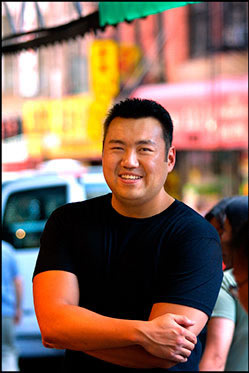|
Great and tragic moments in history cast great and tragic shadows. As a fiction writer your first impulse is to question, to examine, to want to know the answers to the big questions: not just what happened and how, but why. For 9/11, like the assassinations of President John F. Kennedy and Martin Luther King, Jr., or the Vietnam War, or any great cultural watershed moment in our time, there is no why that can be answered for the event, at least not by one man, one work, so shortly after. For the everyman not directly affected by 9/11, and ultimately for the world, it happens, we absorb the quake, we move on. But lost in the shadows are the what and how and ultimately the why of our day-to-day lives—how they change, how nothing is ever truly the same again.
My story "The Merchant" delves into these shadows for a community that was nearly destroyed by 9/11, for a people making their living just blocks away from Wall Street, who had their means demolished, their livelihoods stripped, yet they have been lost in the miasma of political and media polish. Chinatown, New York—population unofficial, undetermined, maybe 150,000-200,000, maybe a half-million, maybe more. Most are immigrants, some illegal, who live and work in the same breath, many in restaurants and factories and shops, for hours and in conditions that many of us cannot begin to imagine. Yet they have homes, families, children; fears and dreams, tragedies and triumphs like all of us. 9/11 crippled Chinatown for months, destroyed lives never heard of, never known. I suspect most of Chinatown in 2001 had never heard of Osama bin Laden and cared very little about terrorism. Why? Because they had nothing to do with business and making a living, which was all they could afford to care about each day.
"The Merchant" is my homage to those people, a chance to learn about them and pay tribute to their loss, which was our loss as well—the devastation and new sensibility of terror, that nothing could be trusted.
At first I didn't want to write this story because of 9/11. I didn't feel up to it, was afraid I would do an injustice to our history, and to those whose wounds from that day will never truly heal. Then I realized this was not a story about 9/11, but about a man and his family and how they would or would not survive. And this, not 9/11, is what made the story ultimately worth writing.
With the killing of Osama bin Laden, a chapter of history closed, but the shadows remain. In the shadows there is more. As Faulkner said, "The poet's voice need not merely be the record of man, it can be one of the props, the pillars to help him endure and prevail." It is our charge as artists to shine and erect those pillars of light by telling the stories that must be told. Let this continue to be our charge.
|


